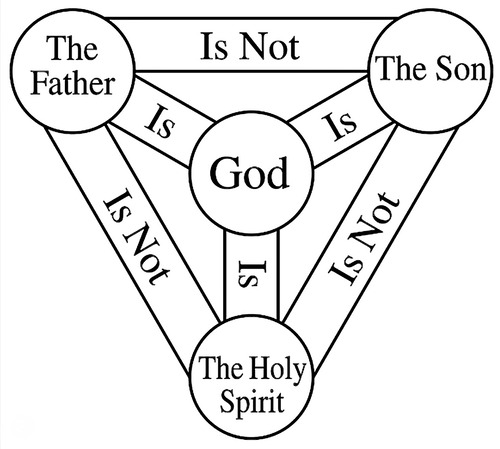Presuming Upon Grace: What Makes It Wrong and Dangerous?
The Allure and Danger of Presuming Upon Grace
God’s grace is a beautiful feature of the Christian faith. It’s undeserved, unearned, and freely given. Yet, there’s a danger in misunderstanding grace as a license to sin—a mindset the Bible warns against repeatedly.
To “presume upon the grace of God” means to take His mercy for granted, to assume His forgiveness while knowingly continuing in disobedience. Presumption distorts the purpose of grace and leads to spiritual complacency, even ruin. Paul addresses this directly in Romans 6:1-2: “Shall we continue in sin, that grace may abound? God forbid.”
Join us as we examine what it means to presume upon grace, why it’s spiritually perilous, and how we can honour God’s mercy through a life of repentance and obedience.
The Nature of God’s Grace
Grace is God’s unmerited favour towards sinners. It’s not earned through works but is freely given to those who place their faith in Christ (Ephesians 2:8-9). However, grace isn’t just a pardon from sin—it’s also a transformative power that trains us to live godly lives. Remember Paul’s words in Titus 2:11-12.
True grace changes the heart. It leads to humility, gratitude, and a desire to obey God. Presuming upon grace, by contrast, cheapens it, turning it into an excuse for sin rather than a call to holiness. Jude 1:4 warns against those who “pervert the grace of our God into sensuality,” showing this danger isn’t new but ever-present..
Presuming Upon Grace: What It Means
Presuming upon grace occurs when we knowingly sin, assuming God will forgive us regardless of our repentance. This attitude reflects a heart that misunderstands the seriousness of sin and the holiness of God.
- False Assurance in Willful Sin: Some believe they can sin freely without consequence because grace abounds. This isn’t faith but rebellion.
- Spiritual Complacency: Presumption leads to neglecting repentance and obedience, dulling our sensitivity to sin.
- A Heart Hardened by Sin: Hebrews 3:13 warns against being hardened by the deceitfulness of sin, a condition presumption fosters.
To presume upon grace is to treat God’s mercy lightly, as if it were a cheap commodity rather than the costly gift it truly is.
Warnings Against Presuming Upon Grace
Scripture offers numerous examples of the dangers of presuming upon God’s grace:
- Old Testament Example: The Israelites presumed upon God’s covenant, believing they could continue in sin without consequence. Jeremiah 7:9-10 captures this mindset: “Will you steal, murder, commit adultery, swear falsely, make offerings to Baal, and go after other gods that you have not known, and then come and stand before me in this house, which is called by my name, and say, ‘We are delivered!’—only to go on doing all these abominations?”
- New Testament Example: Paul warns the Galatians not to use their freedom in Christ as an opportunity for the flesh (Galatians 5:13).
- Judgment on Presumption: In the Parable of the Unfaithful Servant (Luke 12:45-46), Jesus warns that those who presume upon their master’s patience will face severe consequences.
These passages make it clear that presumption is not a trivial matter—it is an affront to God’s holiness and justice.
True Repentance vs. Presumption
Presuming upon grace distorts the gospel and has dire consequences:
- Distorting the Gospel: When we take God’s forgiveness for granted, we cheapen Christ’s sacrifice, reducing grace to permission rather than transformation.
- God’s Discipline: Hebrews 12:6-8 reminds us that God disciplines those He loves. Presumption invites His corrective hand, often in painful ways.
- Eternal Consequences: For those who persist in willful sin without repentance, Jesus’ warning in Matthew 7:21-23 is sobering.
True repentance is the opposite of presumption. It involves a deep sorrow for sin and a sincere turning away from it, as Paul writes in 2 Corinthians 7:10.
A life marked by true repentance bears the fruit of obedience and humility. It treasures God’s grace, not as a safety net for sin but as the power to live righteously.
Grace: Its Transformative Power
The frequently misquoted passage in Romans 6:1-2 strikes at the heart of this theological tension: “Shall we continue in sin that grace may abound? Certainly not!” Grace isn’t a divine permission slip for continued rebellion, but a transformative power that fundamentally reshapes human nature.
True grace doesn’t just cover sin; it conquers it. It doesn’t merely forgive; it regenerates. The believer marked by genuine grace exhibits progressive sanctification—a continual movement toward Christ-likeness.
Conclusion: A Call to Honour God’s Grace
God’s grace isn’t a license to sin but a call to holiness. Presuming upon it is a dangerous misstep that leads to spiritual decay and dishonours the sacrifice of Christ.
Instead, let’s respond to God’s grace with gratitude, repentance, and obedience, living lives that reflect the transformative power of the gospel.
How are we responding to the grace of God in our lives today? Will we presume upon it, or will we honour it by walking in humble faithfulness? Let’s embrace not just the forgiveness, but the transformative power of divine grace.
Presuming Upon Grace—Related FAQs
What is presumptuous sin? Presumptuous sin isn’t simply committing a transgression, but approaching that transgression with a cavalier attitude that expects automatic forgiveness without genuine heart change. It’s the spiritual equivalent of repeatedly writing checks against an account, believing the funds will always cover your reckless spending—except here, the currency is divine grace.
- Does the Bible warn against presumptuous sin? Biblical narratives are replete with warnings against such presumption. Consider King Saul, who repeatedly disobeyed divine instructions, believing his status and past favors would shield him from consequences. Or Simon the Sorcerer in the Book of Acts, who thought God’s grace could be purchased or manipulated.
- What are some characteristics of presumptuous sin? The key characteristics of presumptuous sin include a persistent pattern of known sin without genuine repentance. Such sin may also involve minimal spiritual grief over transgression, or an intellectual acknowledgment of grace without heart transformation—a transactional view of God’s mercy, treating forgiveness as a mechanical process
- How is godly sorrow different from worldly sorrow? True repentance isn’t characterised by mere regret, but by a profound spiritual reorientation. The Apostle Paul distinguishes between “godly sorrow” that leads to repentance and “worldly sorrow” that produces only death. Godly sorrow acknowledges sin’s offense against a holy God, produces genuine heart change, and leads to transformation, not just temporary remorse. It embraces divine standards rather than seeking loopholes. Worldly sorrow, conversely, is primarily concerned with personal consequences—embarrassment, punishment, or loss—rather than the spiritual rupture caused by sin.
How may we guard against presumptuous sin? Guarding against presumptuous sin requires cultivating: continuous self-examination and sensitivity to the Holy Spirit, genuine accountability within the faith community, consistent spiritual disciplines, and a posture of humble dependence on grace. This isn’t a call to perpetual guilt, but to perpetual grace-enabled growth. The believer lives simultaneously in the reality of complete justification and ongoing sanctification. May we approach divine grace not as a safety net, but as the very power that resurrects and renews our souls.
Presuming Upon Grace—Our Related Posts
Editor's Pick
SUPPORT US:
Feel the Holy Spirit's gentle nudge to partner with us?
Donate Online:
Account Name: TRUTHS TO DIE FOR FOUNDATION
Account Number: 10243565459
Bank IFSC: IDFB0043391
Bank Name: IDFC FIRST BANK






